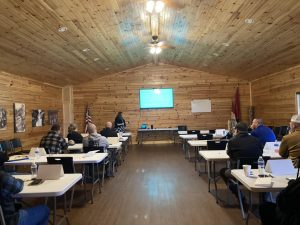Ethics and Professionalism
Demonstrate Ethical and Professional Behavior
As mentioned in the NASW Code of Ethics, Social Workers must conduct themselves in a professional manner. As a professional, I value the NASW Code of Ethics and gladly honor it by following the standards in place. Ethics are crucial to gaining the respect and trust of colleagues, superiors, and most importantly, clients. It is my honor to conduct myself with the upmost professionalism and ethics in order to honor the agency and people I serve. I intend on having the self-awareness necessary to be mindful of the fact that there is always more to learn and learning is a life-long process. It is for this reason that I value constructive criticism as I am always eager to learn and grow. Social Workers recognize that learning is a lifelong journey. Social workers value the profession and its ethical standards. They are attentive to the whole person and how things affect people on all levels micro, mezzo and macro. Social workers are aware of the necessity to respect others and differentiate from personal and professional values in order to be culturally competent. They understand that personal biases can contribute to countertransference. Self-awareness is key to ensure the clients quality of care. They are committed to the need for lifelong learning and growth to continually enhance their skills to ensure effectiveness.
I graduated with my BSW from Tennessee Wesleyan University in 2022. I graduated with my MSW from Southern Adventist University with an emphasis on mental health in 2023. My life experiences have cultivated empathy and a strong desire to help individuals achieve contentment and personal growth. Becoming a therapist has been my lifelong dream since high school, and I remain unwavering in my commitment. I look forward to bettering the lives of all diverse groups of people and guide them to be able to improve their well-being and have satisfaction with their life.
Practice Behaviors:
1.1 – Develop a practice framework for analysis of complex environments, that is ethical, value-grounded, and evidence-based.
Course Evidence:
In my Advanced Administrative Practice: Program Development course, I was assigned a mandatory training through the Collaborative Institutional Training Initiative (CITI). The primary focus of this course is to inform students on how to conduct research responsibly. This included conducting research with integrity, preventing harm of human subjects, preventing conflict of interest and many other facets of producing accurate and ethical research. My certificate for completing this course can be viewed here Citi (3).
Field Evidence:
In my MSW practicum placement, I worked with my field instructor to help me prepare for ethical dilemmas. I was able to utilize the Ethics Model to critically analyze different scenarios that I may experience. I encountered an ethical dilemma in my placement and reported it to my field instructor. I kept notes on my own thoughts and emotions during interactions with clients in order to maintain self-awareness and reflect on how personal reactions impact interactions with clients.
1.2 – Implement supervisory and self-care strategies that integrate professional strengths, limitations and challenges.
Course Evidence: In my Clinical Practice course, I completed a self- care assessment self care.
Field Evidence:
I attended weekly supervision and implemented self-care by spending quality time with family and attending fun events. I utilized better help to attend therapy sessions to maintain self-awareness and battle cognitive distortions. I recognized the need for self-care and made time to spend quality time with my daughter as we attending the Running of the Chihuahuas event in Chattanooga, Tn. During supervision, we were given scenarios to discuss as a group and determine the best ethical decision for that scenario.
Ethical_Decision_Making_Framework
1.3 – Exhibit commitment to professional growth through continuing education, supervision, and ongoing consultation.
Course Evidence:
In class we were given instruction on the concept that learning never stops in social work practice. We rehearsed the Code of Ethics through activities that implemented understanding of personal growth.
Field Evidence:
During MSW weekly supervision, my field instructor and my professor met with me and critically examined my progress and need for growth. We explored solutions to challenges that I faced and I was provided with ideas on how to handle those challenges. I brainstormed using critical thinking and problem solving to address experienced and foreseeable challenges and received feedback on my ideas.
I attended a Crisis intervention training class for police cadets where my practicum supervisor led the instruction.
I attended a mental health workshop at a local church where my practicum supervisor was a guest speaker.
1.4 – Demonstrate professional oral and written communication skills.
Field Evidence:
Throughout my practicum and my current place of employment, I used professional communication skills orally with clients and colleagues and written via email and texts with my supervisor and her colleagues. I sent emails on behalf of my practicum supervisor to agencies interested in Crisis Intervention Training taught by my practicum supervisor. Click email for an example. Regardless of how clients treated me, I did not change how I cared for them. I knew that they were in a mental health crisis and needed my help. I remained aware that this was not personal and it was my duty to provide care regardless of how the client treated me.
Skills: The skills exhibited for this competency is professional communication between myself and clients and their family members as well as collaborating agencies and organizations. I relied on interpersonal skills and active listening skills to effectively communicate with clients, their families and collaborating agencies. This ensured that clients understood the treatment recommendations and what that entails. While observing Crisis assessments, I maintained self-awareness to monitor the emotional toll this had on me. I exercised self-care by attending therapy and spending quality time with my family so that I would be present for my clients. I used critical thinking skills to determine the best course of action to meet the clients current needs. I collaborated with other agencies to provide quality care.
Knowledge: Several courses aided in my knowledge of this competency such as Advanced Administrative Practice: Administrative and Leadership Skills, Group Psychotherapy, Mental Health Emphasis I and II, Advanced Administrative Practice: Program Development, and Advanced Clinical Practice: Individual and Family Intervention. My knowledge of strengths perspective came to use in almost every client I assisted in Crisis. Many of the clients I saw lacked social supports or lacked positive feedback from the people in their lives and this seemed to be a risk factor for those in crisis. When I helped a client become aware of their strengths, this greatly improved their state of well-being.
Values: Empathy, integrity and justice were the values I exercised most in practicum. I had to present the truth and nothing but the truth when referring clients for care, regardless of how that truth would impact the outcome. I frequently found myself compelled to advocate for clients who were not getting proper treatment. Interning in Crisis invoked a great deal of empathy. Most of the clients I interacted with shared a great deal of tragedy from their lives. Many of them lacked social supports and just needed to feel heard and valued.
Cognitive: Multiple cognitive processes were used through this competency such as recognizing needs, discernment and determining best course of action. During my interaction with clients, it was evident that I must remain attentive at all times. As I said before, many of these clients lacked social supports and needed to feel valued. My conversations with clients would last up to an hour. I knew that I had to remain attentive at all times so that they felt valued and heard. I had to remain attentive regardless of how long they had been talking.
Affective: The Cognitive Behavioral Therapy skills I learned in my CBT class were utilized a great deal in my interactions with clients and their families. When clients were telling me things that were upsetting them, I helped them recognize cognitive distortions and encouraged mindfulness to identify those distortions so they are basing their beliefs on reality instead.
Theoretical foundations: Erik Erikson’s psychosocial theory was useful in aiding my understanding in what factors contributed to the client’s current state which afforded me the empathy needed to address the clients needs without judgement.


